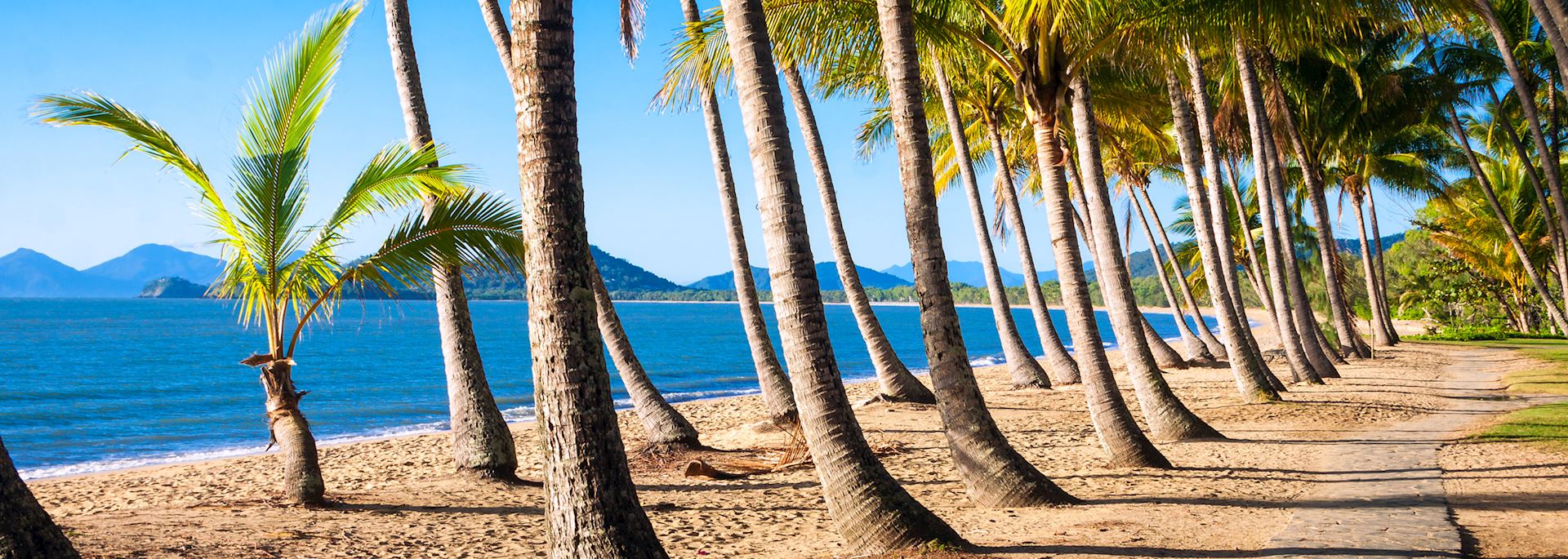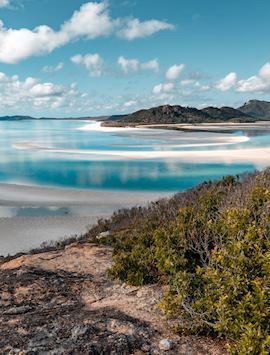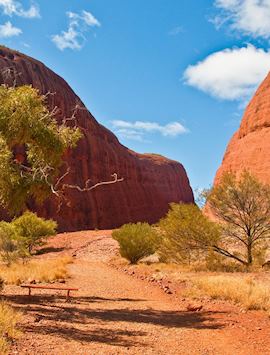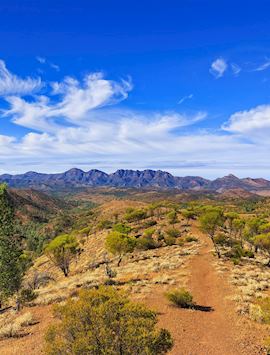By Australia specialist David
Dense rainforests brimming with wildlife, long stretches of balmy beaches along the coast, fertile highlands where savannah and wetlands meet, and a deservedly famous expanse of coral reef. One of the things I find most captivating about Queensland is the enormous diversity of landscapes and experiences you’ll find within this one Australian state.
You could say that Queensland is a study in superlatives. Not only can you snorkel over the Great Barrier Reef, the world’s largest coral reef system and one of the seven natural wonders of the world, but you can also wander through the oldest rainforest in the world with a visit to the Daintree Rainforest. These marvels alone would be reason enough to visit Queensland, yet there’s so much more to see and do as well.
Whether you’d like to spend some time in the glossy, waterfront city of Brisbane, seek out family fun on the Gold Coast, escape into the wilderness of the Atherton Tablelands, or set sail for The Whitsundays, you’ll find it here. I’ve profiled all of the highlights to help you plot your Australian adventure in the ‘Sunshine State’ of Queensland.
Gold Coast to the Sunshine Coast
The Gold Coast
On the southernmost stretch of Queensland’s coastline, the Gold Coast’s modern high-rise towers line a never-ending stretch of golden sand, and more than 400 km (248 miles) of canals and waterways weave their way through the city. When families in particular book a trip to Queensland, I point them in the direction of the Gold Coast for at least a quick visit. From high-octane amusement parks to waterparks with exhilarating slides, it becomes immediately clear why the Gold Coast is known as ‘Australia’s playground’.
Beyond the manmade diversions, though, I like to head inland to Lamington National Park. Set at the base of the McPherson Ranges mountains, this UNESCO World Heritage national park is a prime place for hiking through the bush, walking on a canopy through lofty eucalyptus trees, and looking out for glossy black cockatoos.
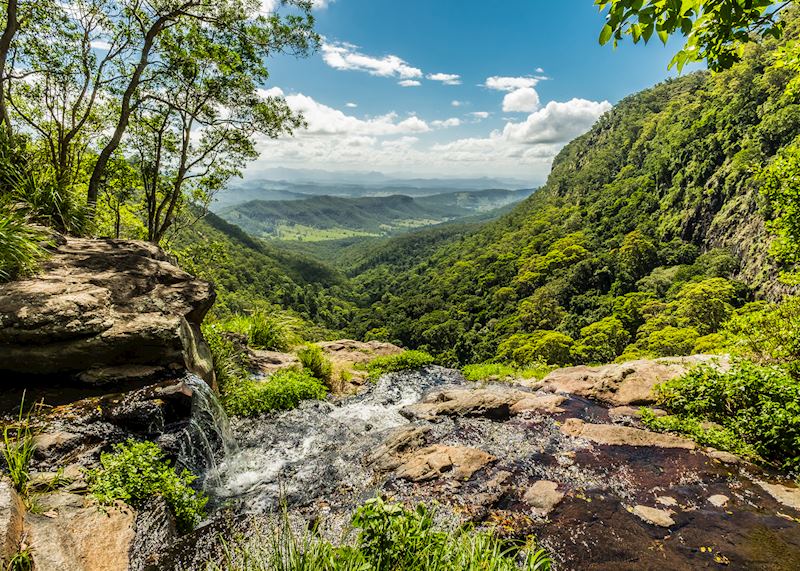
Brisbane
Basking in 300 days of sunshine per year, Brisbane is the capital of Queensland and Australia’s fastest growing city. In fact, it’s set to expand even more as it prepares to host the Summer Olympics in 2032. But, there are plenty of ways to escape the hubbub, too.
I suggest taking a stroll along the South Bank of the Brisbane River, especially if you’re visiting at a weekend, when local handicraft stalls pop up. You could also call into QAGOMA (Queensland Art Gallery & Gallery of Modern Art), which includes a collection of on Aboriginal art, and walk through Brisbane Botanic Gardens — I particularly like pausing at the Japanese gardens to breathe in the peace and quiet.
If you have a bit more time here, you could catch the ferry over to Tangalooma Island Resort on Moreton Island, set amidst a protected marine park. Once there, you’ll find a range of diversions. Snorkel over a shipwreck, ride an ATV over sand dunes, or simply unwind beach side.
For a better chance of spotting marine life, I recommend joining a whale-watching trip that takes you out into Moreton Bay. They operate between July and November, when humpbacks pass through on their way to and from Antarctica. As you look out for tail flukes, spouts of water, and the curve of a whale's body showing above the waves, naturalist guides on board will share information and anecdotes that gives you a greater understanding of humpbacks.
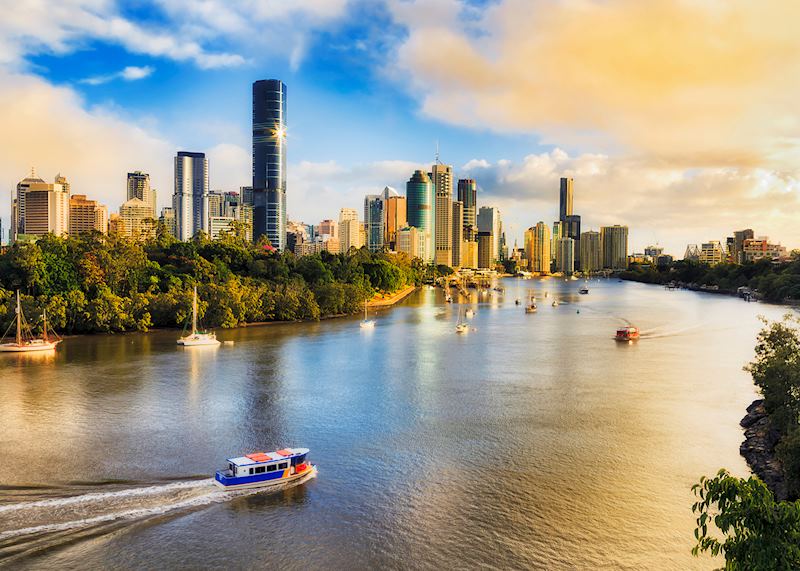
The Sunshine Coast
Learn to surf on the vibrant sands of Rainbow Beach, hike through a lush rainforest, visit quaint historical towns, kayak through still-as-glass waterways, and dine on fresh seafood. The aptly named Sunshine Coast packs a lot into a relatively short stretch of coastline. I also suggest heading inland to hike the craggy peaks of the Glass House Mountains.
The Noosa area is a popular stop-over on the Sunshine Coast, where you’ll find long beaches, calm lakes, and the protected haven of Noosa National Park. A lesser-known highlight is the Noosa Everglades — aside from the Florida Everglades in the USA, it’s the only other everglades system on Earth. Here, you could paddle a kayak down the placid Noosa River, dubbed the River of Mirrors for its utter stillness. The reflective waterway is lined with twisty forests and fragrant eucalyptus, and the everglades are also home to more than 700 species of flowers, from lilies to rare orchids.
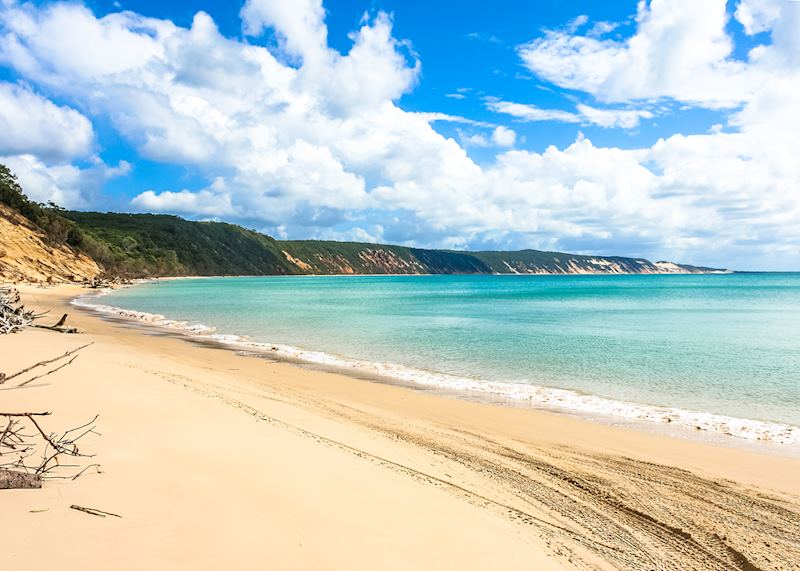
Northern Queensland
Cairns
Backed by green mountains that hug the coastline, the beachside city of Cairns is the gateway to the Great Barrier Reef, offering easy access to this natural wonder. It’s also a bit of hedonistic hub, hosting a thriving young nightlife scene.
Just north of Cairns you’ll find Palm Cove, my personal choice for a place to base yourself in this area. The quiet streets of Palm Cove are framed by vibrantly painted boutiques and shaded by 500-year-old melaleuca trees, and you could grab a snorkel to explore the petite Double Island reef, lying just offshore.
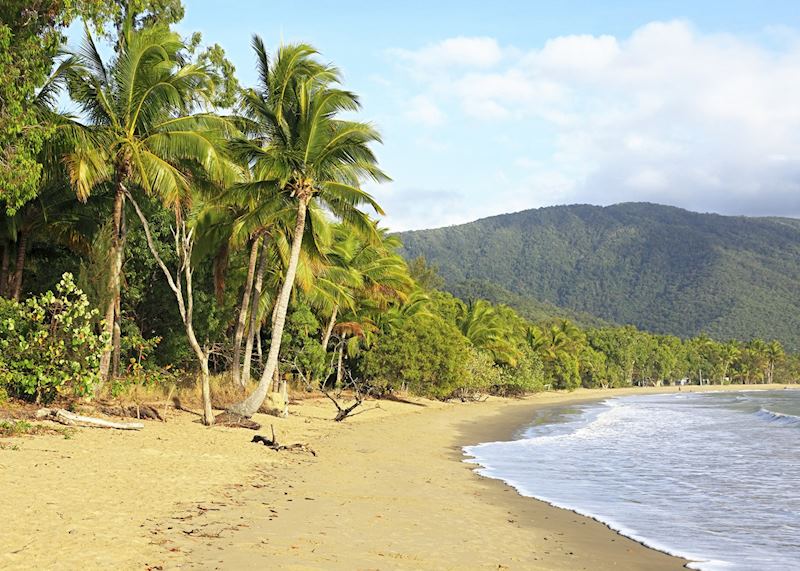
Atherton Tablelands
An hour outside Cairns, the beach is left in your rearview mirror as the landscape turns to mountains and crater lakes forged long ago by volcanic activity. You’ve reached the Atherton Tablelands. Here, you can spend your days trekking through thick jungle, looking out for bandicoots and possums in Mount Hypipamee National Park, and swimming in refreshing pools beneath cascading waterfalls.
There is a welcome sense of isolation out here, and I felt alone with nature. This was especially true while I was staying at Rose Gums Wilderness Retreat, where wooden treehouses are tucked within a private rainforest. If you’re looking for true peace and quiet, this is it — the only thing you’ll hear is the noise of the birds and insects.
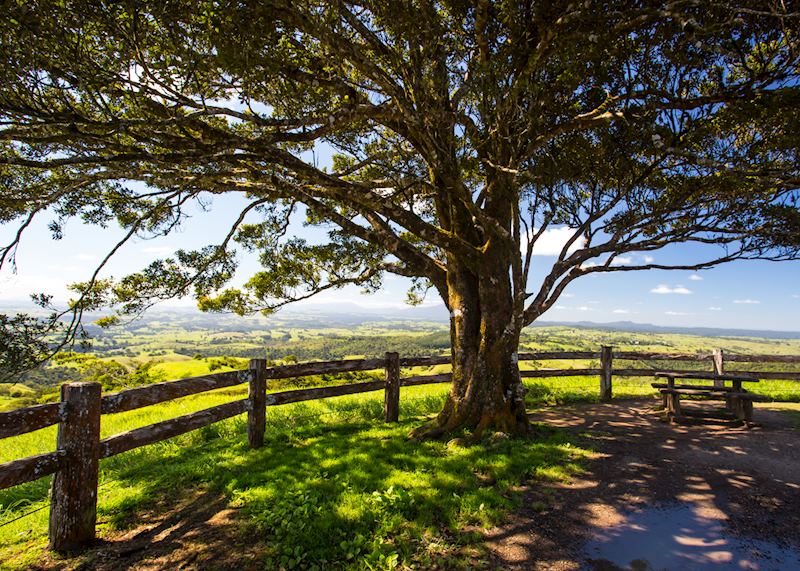
Port Douglas
Quieter than Cairns, and therefore just my speed, Port Douglas is where reef meets rainforest. I really took a liking to this sleepy beach outpost — it’s maintained its laidback fishing-village charm despite becoming a hub for exploring the Daintree Rainforest just inland.
My go-to place to stay in Port Douglas is Thala Beach Nature Reserve. Family owned since the 1970s, this eco-friendly property hosts individual bungalows on a tranquil private beach, and I found the staff go above and beyond to make your stay comfortable.
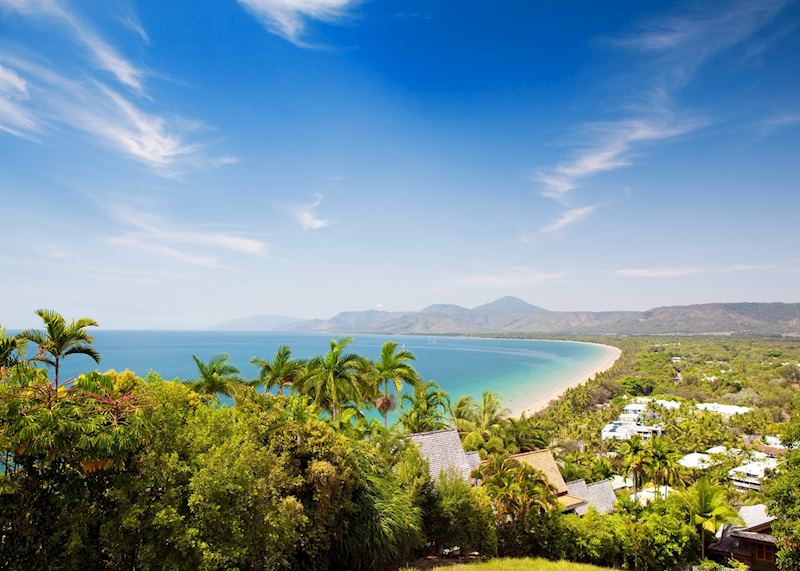
Daintree Rainforest
Stepping beneath the canopy of the Daintree Rainforest is a memory that will always stick with me. It was the first time I ever explored a rainforest. There were more shades of green on display than I could count, and I couldn’t quite comprehend the sheer diversity of life found within this emerald world. While I was out walking with guides, they pointed out reptiles and insects that aren’t present in other parts of Australia. Keep an eye out for the elusive cassowary, a flightless bird that’s endemic to the region, or see if you can spot the distinctly blue Ulysses butterfly.
Another side of the rainforest is revealed if you step on board a boat to cruise the Daintree River. You’ll have the chance to see crocodiles in the wild along with a bevvy of birds flitting overhead. To make the most of your time in the rainforest, I can book you on a tour that combines Daintree with a visit to Cape Tribulation and Mossman Gorge. It’s also possible to explore Mossman Gorge with an Indigenous guide who can share how culture and nature merge in this lush landscape.
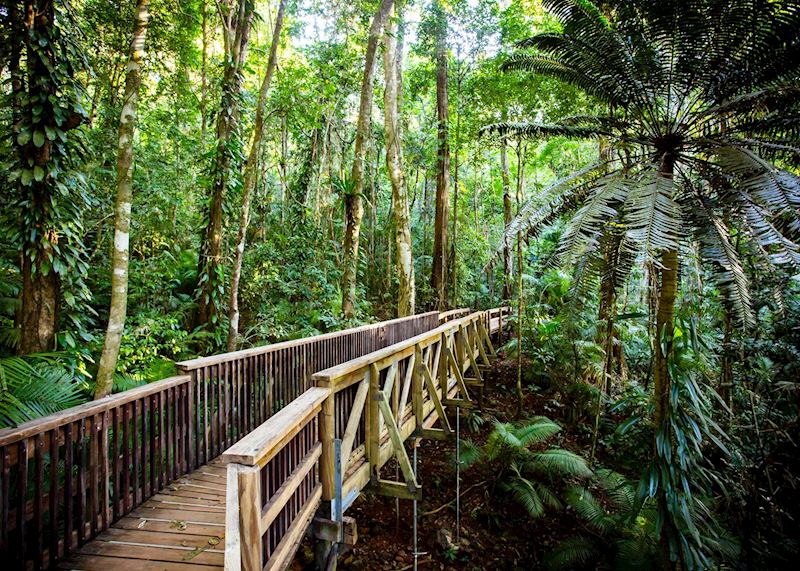
The Great Barrier Reef & The Whitsunday Islands
If you’re looking to dive into the Great Barrier Reef, The Whitsundays Islands, and the other islands that line the Queensland coast, you might find inspiration in our guide to finding the right Great Barrier Reef experience for you.
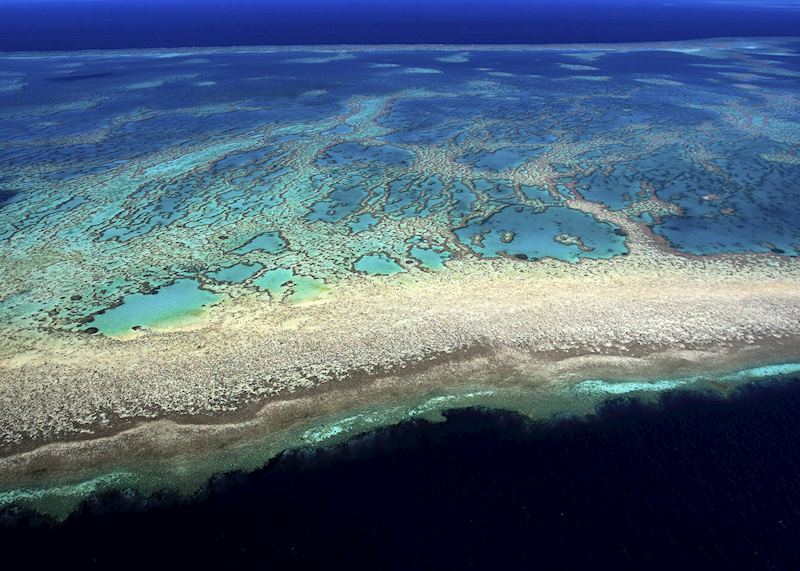
Read more about trips to Australia
Start thinking about your experience. These itineraries are simply suggestions for how you could enjoy some of the same experiences as our specialists. They're just for inspiration, because your trip will be created around your particular tastes.
View All Tours in Australia